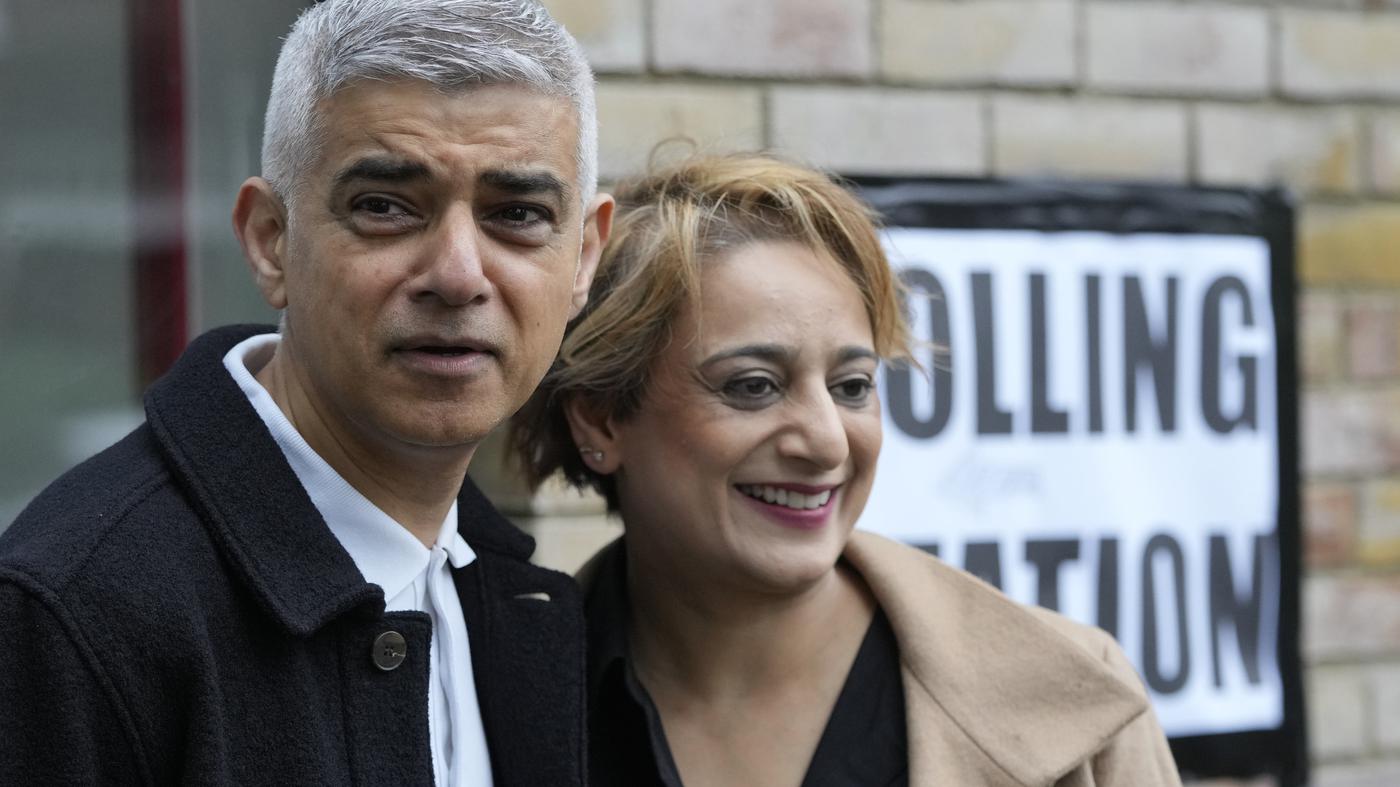Sadiq Khan Secures Third Term as London Mayor
In a remarkable turn of British politics, Sadiq Khan has been re-elected as London's mayor for a third term, while Labour makes significant gains in local councils amid Conservative losses.
Published May 05, 2024 - 00:05am

Image recovered from tagesspiegel.de
London's political landscape witnessed a historic moment as Sadiq Khan has triumphantly secured a third term as Mayor, a first in the city's history. Representing the Labour Party, Khan not only triumphed over his Conservative challenger, Susan Hall, but also stood as a beacon of Labour's broader success in local elections held across the United Kingdom.
This victory for Khan, the son of Pakistani immigrants, who in 2016 became the first Muslim mayor of a Western capital, is seen as a validation of his inclusive politics amidst London's diverse mosaic of communities. As a former human rights lawyer turned politician, Khan's narrative has been of overcoming adversity, which reverberates with many Londoners facing similar challenges.
Beyond the capital, the Labour Party has made substantial inroads, gaining almost 170 council seats and taking control of eight more local councils. This success is juxtaposed against the Conservatives' significant losses, shedding nearly half of their defended seats. Other parties like the Liberal Democrats and the Greens also saw seat increases, underscoring a shifting political terrain ahead of the anticipated parliamentary elections.
Throughout his mayoral tenure, Khan has navigated through the tumult of Brexit, the COVID-19 pandemic, and a cost-of-living crisis. He has introduced measures such as freezing bus and rail fares and initiating free meals for primary pupils, contributing to his policy-driven repute.
However, the Mayor of London's capabilities are shared with the city's 32 boroughs, limiting his executive power compared to his counterparts in cities like Paris or New York. Khan has often ascribed his challenges to a Conservative government supposedly at odds with London's growth, anticipating a change in his fortunes should Labour win the national vote.
This electoral outcome in the UK amplifies pressure on Prime Minister Rishi Sunak, as it portends the potential for Labour to unseat the Conservatives, who have governed for 14 consecutive years. Labour's success in traditional Tory strongholds signals a desire for change, challenging the incumbents with a clear message of discontent from the electorate.
With the national parliamentary elections approaching, Khan's success, coupled with Labour's progressive gains, presages a possible political realignment within Britain's political landscape.
The re-election of Sadiq Khan spells out a number of implications for London's governance and policy-making in the forthcoming term. Khan has consistently championed his plan to make London a more equitable and environmentally sustainable city. Strategies include the expansion of London's Ultra Low Emission Zone, efforts to bolster police numbers to tackle crime, and the promotion of affordable home ownership schemes. These initiatives have resonated with voters who are eager for tangible improvements in their daily lives.
Khan's third term not only provides him a continued platform to enact his policies but also gives a morale boost to the Labour Party, galvanizing its members and supporters. The Mayor's repeat victory symbolizes that progressive policies can have enduring appeal, suggesting that the public may favor long-term, structural changes over short-term, populist measures.
The electoral results also reflect a generational divide, with younger voters tending to align with more progressive platforms offered by Labour, the Liberal Democrats, and the Greens. This demographic shift could have significant ramifications for future elections, with parties needing to address the concerns and aspirations of a younger, more diverse electorate.
Moreover, Khan’s victory underscores the importance of urban areas in UK politics. As cities continue to grow and become ever more influential in determining political outcomes, leaders who can effectively address urban issues are likely to enjoy increased political capital. This also suggests that the ruling party must enhance its appeal in metropolitan areas if it wishes to remain competitive nationally.
In his victory speech, Khan emphasized his commitment to building bridges between diverse communities, fostering a sense of unity in a rapidly changing metropolis. He pledged to tackle the sharpening inequalities exacerbated by the pandemic and to address the critical issue of climate change head-on. The environmentally conscious policies and community-focused social programs proposed echo a wider trend in global urban governance that aims to reconcile growth with sustainability and inclusivity.
The encroaching national elections will be a true test for the Conservative Party, now compelled to reevaluate and potentially recalibrate its policies. With Labour gaining on the Conservatives' historically strong constituencies, there is an undercurrent of urgency for Rishi Sunak and his party to conceive a winning strategy that can appeal to the shifted sentiments of the electorate.
As Sadiq Khan prepares to helm London's mayoralty once more, the world watches with keen interest to see how his pioneering leadership will shape the future of one of the globe's most important cities. His third term could be instrumental in charting a new course for urban leadership, not only in London but as a case study for cities worldwide striving to meet the complex demands of the 21st century.







:quality(70)/cloudfront-eu-central-1.images.arcpublishing.com/irishtimes/SV5HVQWI7BV6H65746THQB7QAM.jpg)